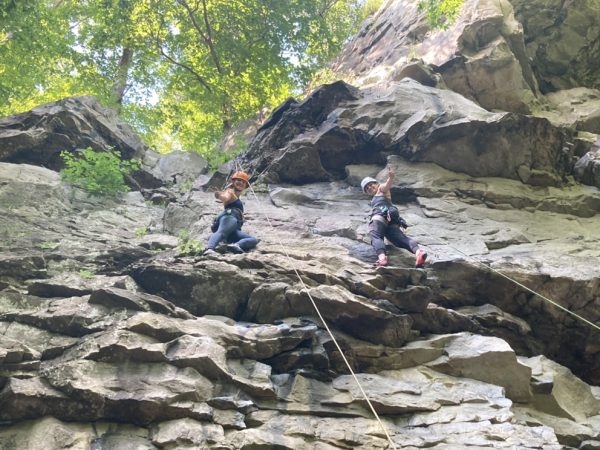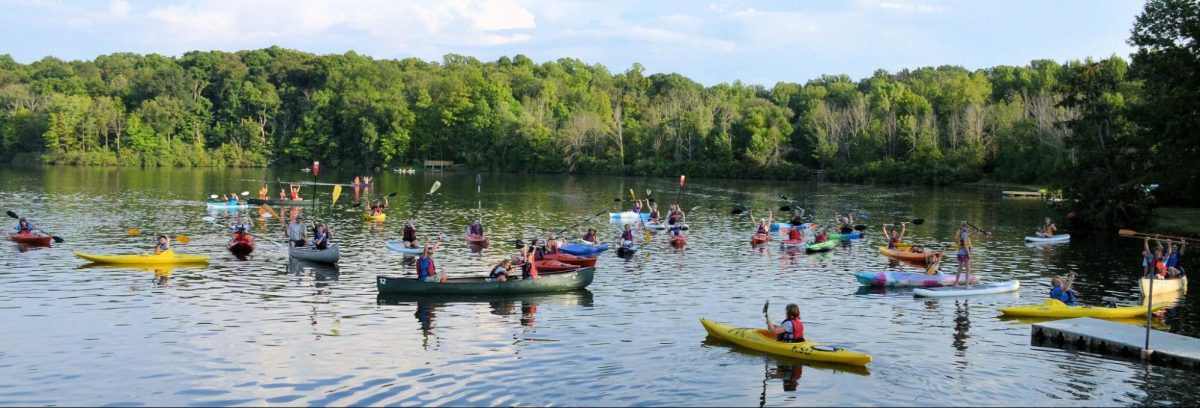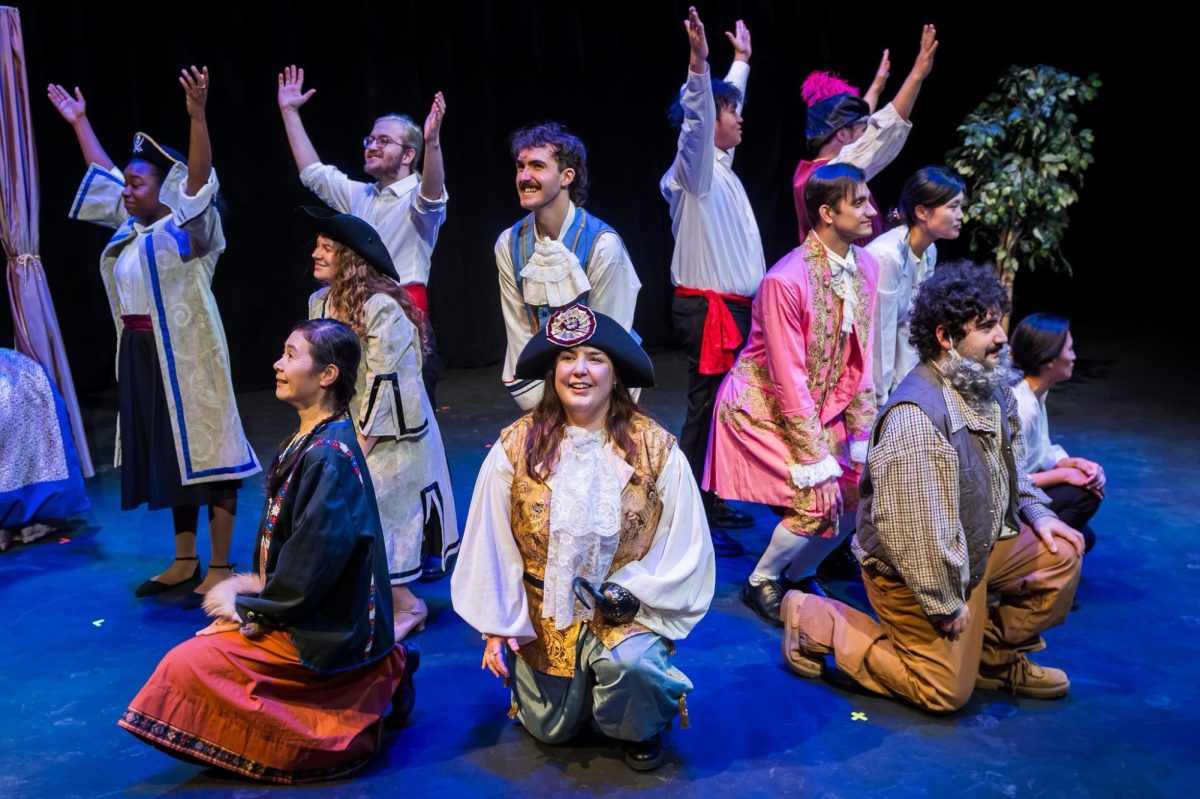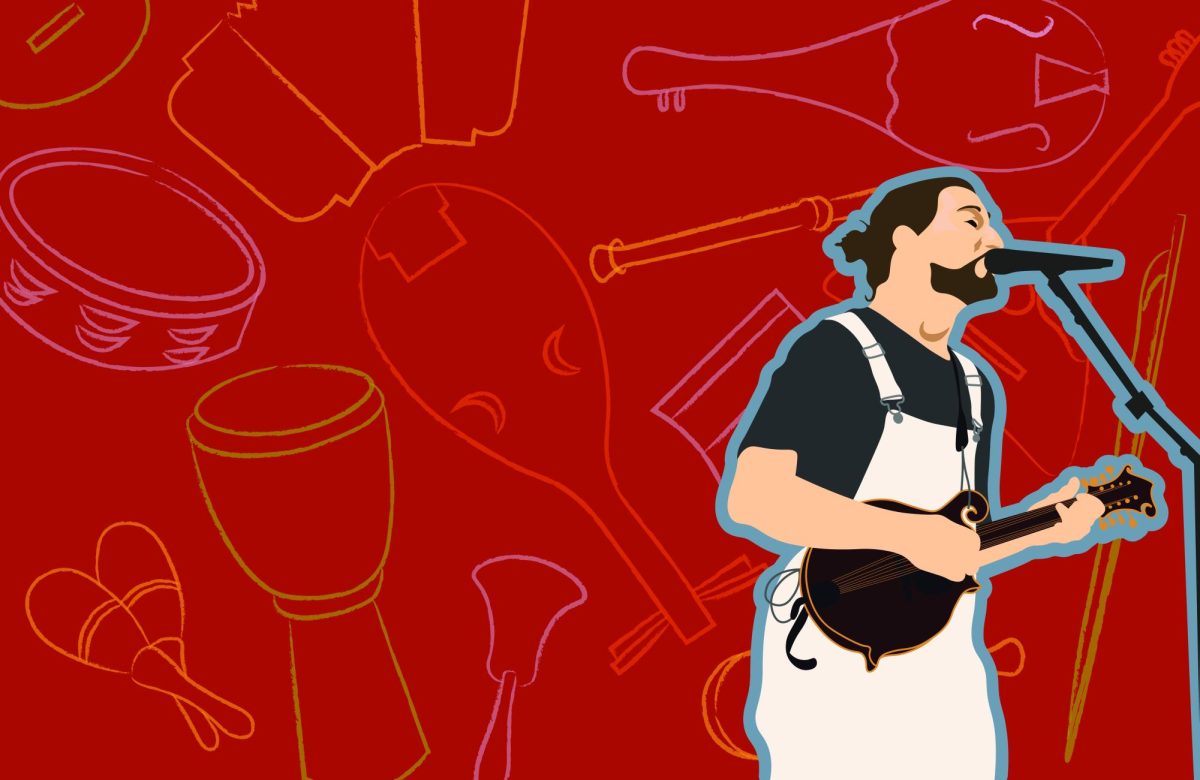The Adventure Center works to rent affordable outdoor equipment, offer trip options and teach courses on the importance of sustainability to all students interested in nature.
The Adventure Center, located at the Department of Recreation and Wellness Services, offers a variety of equipment to rent, including tents, kayaks and paddle boards.
“Our goal is for our equipment to be as inexpensive as possible to give students, but it is open to the community as well, access to outdoor gear that they might not otherwise have so that they can do adventures that they might not otherwise be able to do,” said Chris Lukas, assistant director of Outdoor Adventure and Operations. “We have lots of camping, backpacking, kayaking gear and other stuff as well.”
Students can rent gear for one day up to two weeks for any trips they plan on taking with the Adventure Center or on their own time.
The center launched a new program in the fall semester called the “Wilderness Wardrobe Program,” where students can borrow outdoor jackets, shoes and more.
“It is kind of along the same lines as our rental center, but it is also donation-based,” Lukas said. “We now have a lot of outdoor gear and apparel that we are giving away to people or lending to people for free, with the goal of giving them gear that they don’t otherwise have access to.”
The public can be a part of the trips the Adventure Center offers.
“We usually try to make them really affordable because we know our target market is college students that are on a college budget and live on campus,” said Kennedy White, Adventure Center Trips and Clinics Supervisor. “So, at the beginning of every semester, I pick what trips we can go on, and I factor the prices to be as low as we can, to try to make it as affordable as possible for students.”
The Adventure Center has a variety of different trips and locations. It offers overnight and day trips, with a variety of activities like outdoor and indoor rock climbing, kayaking, paddle boarding, regular hikes and longer hikes for backpacking.

In the past for overnight trips, people have gone to the Laurel Highlands in Pennsylvania and Meadow River Gorge in West Virginia.
“In the summers, students meet up and kayak down the Cuyahoga river every weekend,” White said. “Usually, our day hikes are $10, and our river trips are about $25. Our most expensive are our overnight trips at about $85-$95.We try to put more value into it and tell people that covers your food, your transportation, some of the gear, us cooking for you and stuff like that.”
Not all of the trips are on land at the Adventure Center, giving more variety to students.
“We do a lot of paddling trips locally,” Lukas said. “We have a fleet of about 30 kayaks that we can use, so we spend a lot of time on the Cuyahoga River and some others.”
Having these accessibilities on campus can allow students to start something that they have been afraid of doing for a long time.
“We understand that a lot of the activities that we do can be scary and intimidating,” Lukas said. “Rock climbing can be scary, backpacking with 40 pounds of weight on your back can be scary and staying overnight away from home for multiple days can be scary. Our two biggest goals are safety and creating a welcoming environment and atmosphere where people can feel safe, have their questions answered, and they can meet people and learn new skills.”
The staff at the center use sustainable methods that stick with them in their daily lives.
“We teach and follow ‘leave no trace’, which is an entire set of principles on how to leave nature as you have found it and to impose as little disturbance to it as you can, since we are foreign things coming into nature,” White said. “So, that is not leaving trash, following the trail, leaving wildlife alone. I do that when I hike and kayak on my own and around campus too. I try to walk places when I can and have a no waste lifestyle. It’s hard sometimes, with a college lifestyle, but I do things like thrifting and reusing to help in small ways that I can.”
The Adventure Center tries to offer at least one trip a semester, where people give back to the environment, Lukas said. Their most common one is collecting trash in the Cuyahoga river for river cleanups, but they also do land cleanups at parks as well.
“We probably had about 30 bags of trash that we pulled out of the river,” Lukas said. “It is always a priority for us. Because I get to do it as part of my job, it reminds me that it is something that I should be doing in the rest of my life, so that is always a cool aspect of my career.”
Ella Katona is a reporter. Contact her at [email protected].








